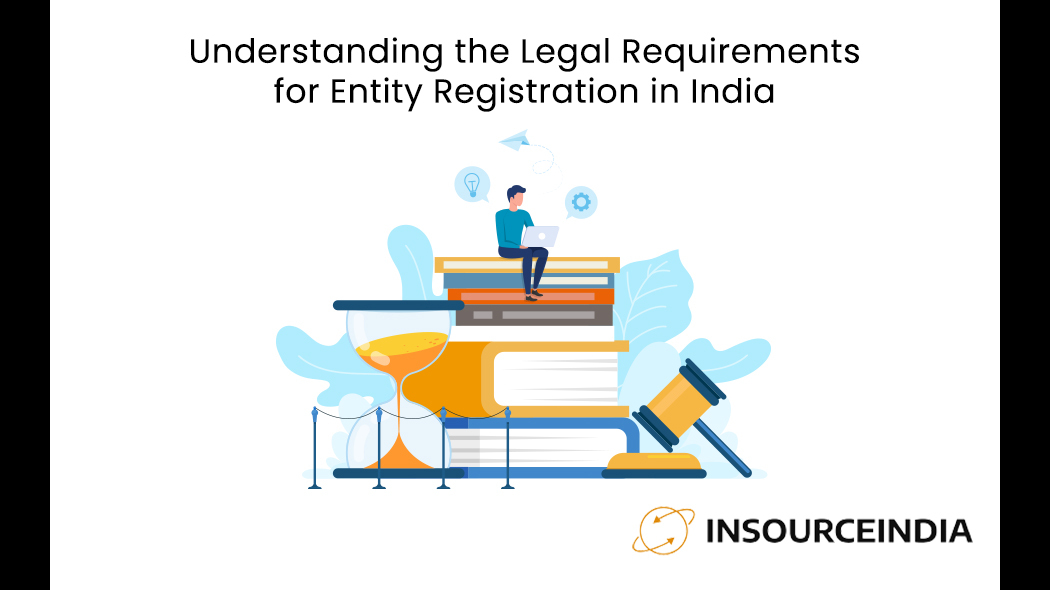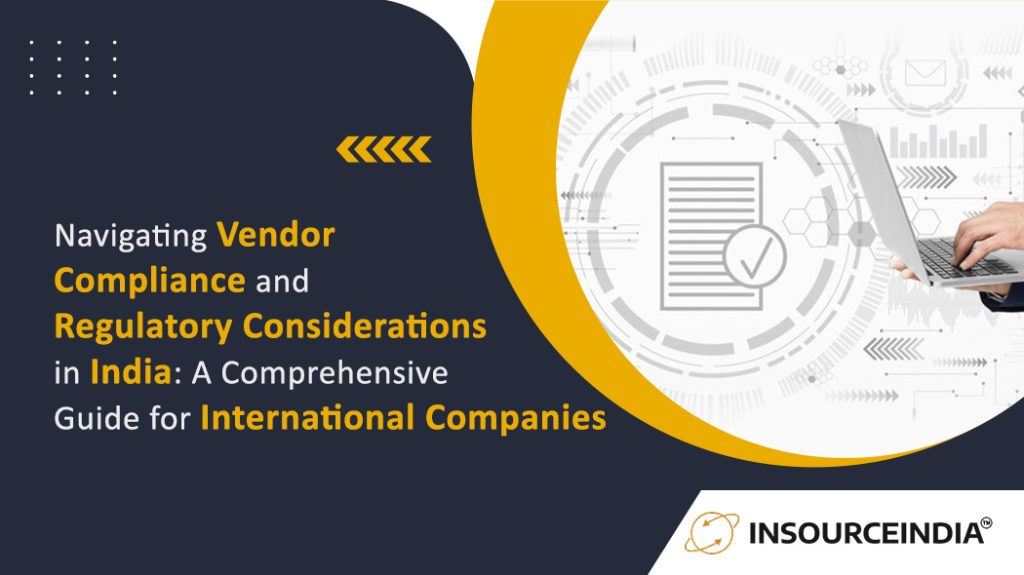In India, there are different types of business entities that can be registered, such as
-
Sole proprietorship
-
Partnership firm
-
limited liability partnership (LLP)
-
private limited company (PLC)
-
public limited company (PLC)
Each type of entity has its own unique features, advantages, and legal requirements for registration.
The process of entity registration involves obtaining the necessary licenses and permits, choosing a unique name, preparing and filing the required documents, and obtaining a certificate of incorporation from the Registrar of Companies (ROC). The legal requirements for entity registration vary depending on the type of entity, as each type of entity has its own unique features, advantages, and legal requirements.
Here is a brief overview of the registration requirements for some of the most common types of entities:
Sole Proprietorship

There is no formal registration required for a sole proprietorship. However, it is advisable to obtain a GST registration if the annual turnover is above a certain threshold. A sole proprietorship is the simplest form of business entity in India, and there are no specific legal requirements for its registration.
However, it is advisable to follow certain steps to establish a sole proprietorship and comply with applicable laws:
- Choose a name for the business: The name of the sole proprietorship should be unique and not infringe on any existing trademarks. It is advisable to conduct a search on the Ministry of Corporate Affairs website to ensure that the name is available.
- Obtain a PAN card: The proprietor should apply for a PAN card in his/her name, as it is required for various business transactions.
- Register for GST: If the annual turnover of the sole proprietorship is above the specified threshold, it is mandatory to register for GST. The threshold varies for different states and types of businesses.
- Open a bank account: The proprietor should open a separate bank account in the name of the sole proprietorship to keep business transactions separate from personal transactions.
- Obtain necessary licenses and permits: Depending on the nature of the business, the proprietor may need to obtain licenses and permits from the local authorities. For example, a food business may require a food license, while a retail business may require a trade license.
- Maintain proper records: The proprietor should maintain proper records of all business transactions, including invoices, receipts, and expenses.
It is important to note that a sole proprietorship does not have a separate legal identity from the proprietor, which means that the proprietor is personally liable for any debts or obligations of the business. Therefore, it is advisable to obtain appropriate insurance coverage to protect against any unforeseen liabilities.
Partnership Firm
A partnership firm can be registered with the Registrar of Firms by filing an application along with the prescribed fee and documents such as partnership deed, PAN card, etc. In India, a partnership firm can be registered with the Registrar of Firms under the Indian Partnership Act, 1932.
The following are the legal requirements for partnership firm registration:
- Partnership Deed: A partnership deed is a legal document that outlines the terms and conditions of the partnership, including the capital contributions, profit sharing ratio, roles and responsibilities of partners, etc. The partnership deed must be drafted and signed by all partners and stamped as per the applicable stamp duty rates.
- Application for registration: The partners must prepare an application for registration of the partnership firm, which should include the partnership deed, the names and addresses of partners, the name of the partnership firm, and other relevant details.
- Payment of Fees: A prescribed fee must be paid for registration of the partnership firm.
- Submission of Documents: The application for registration along with the partnership deed and the prescribed fee must be submitted to the Registrar of Firms in the state where the partnership firm is located.
- Obtaining PAN Card: After registration of the partnership firm, the partners must obtain a PAN card in the name of the firm.
- Obtaining GST Registration: If the annual turnover of the partnership firm exceeds the specified threshold, it must obtain GST registration.
It is important to note that a partnership firm is not a separate legal entity from its partners, and the partners are jointly and severally liable for the debts and obligations of the firm. Therefore, it is advisable to draft a comprehensive partnership deed that clearly outlines the rights, duties, and liabilities of each partner.
Limited Liability Partnership (LLP)
LLP registration can be done by filing an application with the Ministry of Corporate Affairs (MCA) along with the required documents such as LLP agreement, PAN card, etc. In India, Limited Liability Partnership (LLP) is a popular form of business entity that combines the benefits of a partnership and a limited liability company.
The following are the legal requirements for LLP registration:
- Obtaining Digital Signature Certificate (DSC) and Director Identification Number (DIN): The designated partners of the LLP must obtain a DSC and DIN, which are mandatory for filing the LLP registration application.
- Choosing a unique name: The LLP should have a unique name, which must not be similar to any existing companies or LLPs. The name must be approved by the MCA.
- Filing of LLP registration application: The designated partners must file an application for LLP registration with the Ministry of Corporate Affairs (MCA) along with the required documents, such as LLP agreement, address proof, PAN card, etc.
- Payment of Fees: A prescribed fee must be paid for LLP registration.
- Obtaining PAN Card: After registration of the LLP, the partners must obtain a PAN card in the name of the LLP.
- Obtaining GST Registration: If the annual turnover of the LLP exceeds the specified threshold, it must obtain GST registration.
- Drafting the LLP agreement: The LLP agreement is a legal document that outlines the terms and conditions of the LLP, including the rights, duties, and obligations of the partners, profit-sharing ratio, etc.
It is important to note that LLP is a separate legal entity from its partners, and the partners are liable only to the extent of their capital contribution in the LLP. Therefore, it is advisable to draft a comprehensive LLP agreement that clearly outlines the rights, duties, and liabilities of each partner.
Private Limited Company
Private limited company registration involves obtaining a Digital Signature Certificate (DSC) and Director Identification Number (DIN) for the directors, choosing a unique name, and filing an application with the MCA along with the required documents such as Memorandum of Association (MOA), Articles of Association (AOA), PAN card, etc.In India, Private Limited Company (PLC) is a popular form of business entity that provides limited liability protection to its shareholders.
The following are the legal requirements for PLC registration:
- Obtaining Digital Signature Certificate (DSC) and Director Identification Number (DIN): The proposed directors of the PLC must obtain a DSC and DIN, which are mandatory for filing the registration application.
- Choosing a unique name: The PLC should have a unique name, which must not be similar to any existing companies or LLPs. The name must be approved by the MCA.
- Filing of registration application: The proposed directors must file an application for PLC registration with the Ministry of Corporate Affairs (MCA) along with the required documents, such as MOA, AOA, address proof, PAN card, etc.
- Payment of Fees: A prescribed fee must be paid for PLC registration.
- Obtaining PAN Card: After registration of the PLC, the company must obtain a PAN card in its name.
- Obtaining GST Registration: If the annual turnover of the PLC exceeds the specified threshold, it must obtain GST registration.
- Drafting the Memorandum of Association (MOA) and Articles of Association (AOA): The MOA and AOA are legal documents that outline the objects, powers, and regulations of the company, including the rights and obligations of the shareholders, directors, and officers.
- Appointment of Directors: The directors of the PLC must be appointed as per the provisions of the Companies Act, 2013.
- Obtaining Certificate of Commencement of Business: After incorporation, the PLC must obtain a certificate of commencement of business from the Registrar of Companies (ROC) before it can commence its business operations.
It is important to note that PLC is a separate legal entity from its shareholders, and the shareholders are liable only to the extent of their capital contribution in the company. Therefore, it is advisable to draft a comprehensive MOA and AOA that clearly outlines the rights, duties, and liabilities of each shareholder and director.
Public Limited Company
Public limited company registration involves similar steps as private limited company registration, but with additional requirements such as a minimum of seven shareholders, a minimum share capital of Rs. 5 lakhs, and a prospectus or a statement in lieu of prospectus. In India, Public Limited Company (PLC) is a form of business entity that offers shares to the general public and is listed on a stock exchange.
The following are the legal requirements for PLC registration:
- Obtaining Digital Signature Certificate (DSC) and Director Identification Number (DIN): The proposed directors of the PLC must obtain a DSC and DIN, which are mandatory for filing the registration application.
- Choosing a unique name: The PLC should have a unique name, which must not be similar to any existing companies or LLPs. The name must be approved by the MCA.
- Filing of registration application: The proposed directors must file an application for PLC registration with the Ministry of Corporate Affairs (MCA) along with the required documents, such as MOA, AOA, address proof, PAN card, etc.
- Payment of Fees: A prescribed fee must be paid for PLC registration.
- Obtaining PAN Card: After registration of the PLC, the company must obtain a PAN card in its name.
- Obtaining GST Registration: If the annual turnover of the PLC exceeds the specified threshold, it must obtain GST registration.
- Drafting the Memorandum of Association (MOA) and Articles of Association (AOA): The MOA and AOA are legal documents that outline the objects, powers, and regulations of the company, including the rights and obligations of the shareholders, directors, and officers.
- Appointment of Directors: The directors of the PLC must be appointed as per the provisions of the Companies Act, 2013.
- Obtaining Certificate of Commencement of Business: After incorporation, the PLC must obtain a certificate of commencement of business from the Registrar of Companies (ROC) before it can commence its business operations.
- Listing on Stock Exchange: A PLC can apply for listing on a recognized stock exchange after meeting the required eligibility criteria.
It is important to note that PLC is a separate legal entity from its shareholders, and the shareholders are liable only to the extent of their capital contribution in the company. Therefore, it is advisable to draft a comprehensive MOA and AOA that clearly outlines the rights, duties, and liabilities of each shareholder and director.
In addition to these entity-specific requirements, all entities in India must obtain a PAN card, register for GST (if applicable), and comply with other applicable laws such as income tax, labor laws, etc. It is advisable to consult a legal professional for specific guidance on entity registration in India.
Therefore, it is important for individuals or companies looking to register a business entity in India to understand the legal requirements and compliance procedures associated with the type of entity they wish to register, in order to ensure that they meet all the necessary requirements and operate their business in a legally compliant manner.














